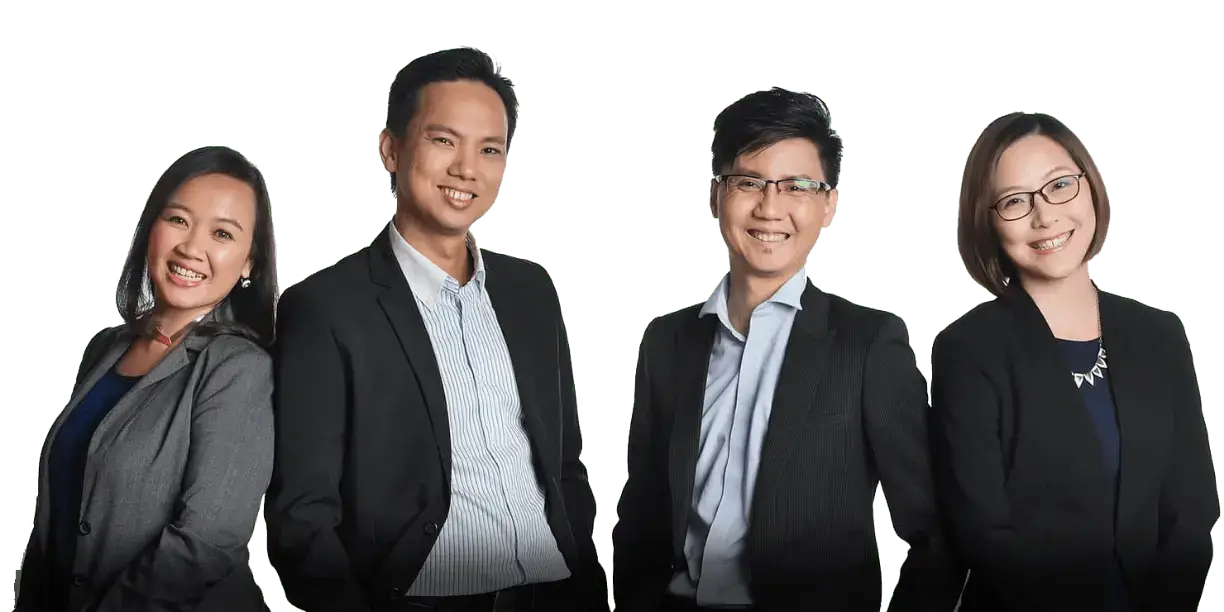Singapore Individual Taxes: Comprehensive Guide
Singapore offers some of the lowest personal income tax rates in the world, making it an attractive destination for professionals, entrepreneurs, and high-income earners. Its simple, transparent, and progressive tax system is designed to encourage both local and foreign talent to live and work in the country.
This guide explains how individual taxation works in Singapore, including tax residency rules, individual income tax rates, taxable income categories, reliefs, and annual filing requirements.
Table of Contents
Key Takeaways About Singapore Personal Taxes
Singapore tax residents are taxed at a progressive rate of 0% to 24%.
Non-tax residents are taxed at a rate that varies between 15% to 24%.
There are no taxes on capital gains, dividends or inheritance.
With a few exception, foreign-sourced income is exempt from taxes levied by Singapore.
Individual Tax Residency Status in Singapore
The amount of tax an individual must pay depends on his or her tax residency status. In Singapore, the following individuals are considered to be tax residents of the country:
- Singapore citizens;
- Singapore permanent residents;
- Any foreigner who has worked or stayed in Singapore for 183 days or more.
Individual Tax Rates in Singapore
Tax Rates for Singapore Tax Residents
| Taxable income | Income tax rate |
|---|---|
| First S$20,000 | 0% |
| Next S$10,000 (up to S$30,000) | 2% |
| Next S$10,000 (up to S$40,000) | 3.5% |
| Next S$40,000 (up to S$80,000) | 7% |
| Next S$40,000 (up to S$120,000) | 11.5% |
| Next S$40,000 (up to S$160,000) | 15% |
| Next S$40,000 (up to S$200,000) | 18% |
| Next S$40,000 (up to S$240,000) | 19% |
| Next S$40,000 (up to S$280,000) | 19.5% |
| Next S$40,000 (up to S$320,000) | 20% |
| Next S$180,000 (up to S$500,000) | 22% |
| Next S$500,000 (up to S$1 million) | 23% |
| Above S$1 million | 24% |
Non-Resident Status
| Number of days in Singapore | Tax rate |
|---|---|
| 60 days or fewer | 0% |
| 61–182 days | Flat rate of 15% OR A progressive tax rate capped at 24% – whichever results in the higher amount |
Non-Resident Status
| Income type | Tax rate |
|---|---|
| Director’s fees | 24% |
| Income earned as a public entertainer | 15% |
| Income earned as a consultant, trainer or coach | 15% |
Calculate Your Personal Tax in Singapore
Get clarity on your taxes in minutes.
Accurate, simple, and free.
Tax on Foreign Income
In general, income earned from employment outside of Singapore is not taxable. This includes income that has been received in a Singapore bank account. Furthermore, qualifying foreign sourced income does not need to be declared.
However, foreign income is taxed under the following conditions:
- The foreign employment is incidental to Singapore employment. This means the position requires the individual to work and travel outside of Singapore but the position is based in Singapore.
- The individual works in Singapore for a foreign employer
- The income was received in Singapore through a partnership (unless the income qualifies for exemption)
- The individual earned the income outside of Singapore while working for the Singapore government.
- The individual received income in Singapore for professional, technical, consultancy or other services completed in a location overseas that does not qualify as a fixed place of operation. This includes locations that are used temporarily or for preparatory and auxiliary activities to the main service.
Personal Income Exempt From Tax
Capital gains
Dividend income
Inheritance
In 2008, Singapore removed inheritance tax (also known as estate duty) on the assets of a deceased individual. Common estate assets that are no longer taxed include:
- Immovable property;
- Bank accounts;
- Publicly listed shares;
- Items in a safe deposit box.
Tax Deductions
Employment expenses
Individuals can deduct expenses incurred as a part of their employment as long as the expense meets the following criteria:
- The expense was incurred while carrying out the requirements of the job.
- The expense was not reimbursed by the employer.
- The expense was not a capital expenditure (such as the purchase of a fixed asset).
- The expense was not for personal use.
Examples of deductible employment expenses include:
- Meal expense;
- Transport expense;
- Car services;
- Medical reimbursements;
- Housing expense that is related to employment.
Donations
Individuals can claim donations to qualifying charitable organizations as deductions. Examples of donations include:
- Cash donations;
- Shares donations;
- Artifact donations;
- Land and building donations.
Expenses incurred from rental income: Individuals can claim rental income expenses under the following conditions:
- The expense was solely for the purpose of producing rental income and
- The expense was incurred while a tenant was living in the property.
Self-improvement tax relief
Singapore tax residents can receive tax rebates and relief for the following items:
- Course fee relief: Reimbursements on course fees for individuals who invest in upgrading their skills and improve their employability.
- CPF Cash Top Up: Tax relief for individuals who set money aside for retirement.
- Supplementary Retirement Scheme (SRS) Relief: Tax relief to encourage individuals to save for retirement beyond their CPF saving/
Deduction for angel investors
Singapore allows angel investors to deduct their investments in new startups under the following conditions:
- The angel invests at least $100,000 of qualifying investment in a qualifying startup company within 12 months of the initial investment and
- The angel holds the investment for a continuous period of two years from the date of the last qualifying investment.
Trusted by Global Entrepreneurs Like You
Glad to have picked you as a partner!
We have been your clients for almost a year, and I highly commend you for the professionalism and the courteous attention that is always shown by Jacqueline, Sandy, Benny, and other team members. You helped us from getting our company set up to providing a one-stop solution covering tax, accounting, finance, legal, and other business-related advice. Thank you for your outstanding work. Glad to have picked you as a partner and looking forward to many years of fruitful cooperation!

Karen Lam
Director, Thoughtful Food Pte LtdFiling Individual Taxes in Singapore
Filing basics
- Who files: Individuals must file if they are notified by IRAS to file or their annual income exceeds S$22,000. If it’s below S$22,000, filing is usually not required unless IRAS asks you to file or you have certain types of income.
- Basis period: Taxes are assessed on income earned from 1 Jan to 31 Dec of the preceding year. Example: YA 2026 covers income from 1 Jan to 31 Dec 2025.
Deadlines each year
- Paper filing: 15 April
- E-filing: 18 April
Which form to use
- Form B1: Employed individuals
- Form B: Self-employed individuals, including sole-props and partners
- Form M: Non-resident individuals
After you file
- Notice of Assessment (NOA): Issued roughly May to September.
- Payment due: Within 30 days of the NOA date. You can pay in full or via GIRO monthly installments if approved.
- Objections: If you disagree, file an objection within 30 days of the NOA. You still need to pay by the due date to avoid penalties; IRAS will adjust or refund if your objection succeeds.
- Late payment penalty: 5% on unpaid tax after the due date, with additional penalties if it remains unpaid.

Have Questions?
Tell us your needs and we will get in touch with you promptly.







